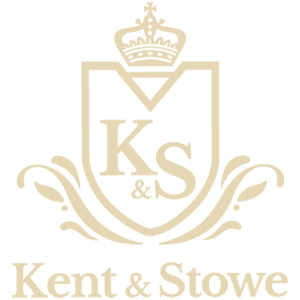Modern Slavery Act
Modern Slavery Act
Kent & Stowe, part of Westland Horticulture Ltd (“Westland”) and its subsidiaries (the “Group”) are committed to the highest ethical standards. This extends to all aspects of our business’s activities including the way we engage with each other, our staff, customers, suppliers, and other stakeholders. Our reputation is based on achievement and attainment of these high standards. As a Group, we maintain relationships with many different organisations in our supply chain, as well as directly employing large numbers of people. Westland does not and will not tolerate modern slavery or human trafficking both within the Group and within its supply chain. Prevention of exploitation associated with modern slavery and trafficking is of the highest priority. This statement is made in accordance with the requirements set out in the Modern Slavery Act 2015 (“the Act”).
This encompasses a statement of the steps we have taken, including those taken during the financial year ending August 2024, to ensure that slavery and human trafficking is not taking place in any part of our supply chain or any aspect of our business.
Our Business
Westland was established in 1990 in Dungannon, County Tyrone, Northern Ireland. Since its early days of producing compost, Westland has grown in both size and strength and is now one of the leading and fastest growing horticultural companies in the UK.
Employing over 500 staff across the UK and the Republic of Ireland, we are dedicated to creating sustainable value for our stakeholders and ensuring we provide an engaging culture in which our people can thrive and fulfil their potential. We acknowledge that our operations, directly and indirectly, impact all our partners in business and we will ensure that we always maintain strong ethical working relationships.
Our Policies
Our Group respects fundamental human rights and is committed to the principles set out in the Ethical Trading Initiative Base Code (“the Code”). The Ethical Trading Initiative (ETI) is a leading alliance of companies, trade unions and NGOs that promotes respect for workers’ rights around the globe. We support and respect the protection of human rights within our sphere of influence, in particular the effective elimination of compulsory labour and child labour. Our Ethical Trading Policy (“the Policy”) supports the content of the Code and governs all our business dealings.
The Group is engaged in global trade, and we expect commitment to the principles set out in the Code from all organisations with which we do business and will not support or do business with any individual or organisation that is knowingly involved in slavery or human trafficking.
We reserve the right to terminate our relationship with individuals and organisations in our supply chain if found to be in breach of our Policy or any of the principles set out in the Code
.
Due Diligence and its effectiveness
Throughout 2024 we have continued the work we began in 2018 to assess our exposure to modern slavery in our supplier base and their supply chains. Assessments have continued to focus on our immediate suppliers, once again acknowledging that geography is the greatest factor affecting the likelihood that modern slavery will exist.
Using the Global Slavery Index, as published by the Walk Free Foundation, we have continued to focus our attention on our suppliers based in countries that are at highest risk from modern slavery.
In the interests of consistency, we have continued to employ the same methodology this most recent financial year as we used in 2018. Focussing our attention on the level of business conducted with our suppliers and their geographical location. A score has been provided for each supplier based on these factors.
Using this process for a second year we have achieved a reduction on the very small proportion of our immediate suppliers that were flagged as a Modern Slavery concern. The percentage of suppliers considered as a concern has reduced from <0.4% in 2018 to <0.2% this most recent financial year. This reduction has been achieved by taking strong action with the suppliers at greatest risk. Reducing spend and seeking alternative suppliers have been amongst the actions taken. We have maintained our close relationships with the remaining medium risk suppliers and our company representatives local to them continue to monitor them in all aspects of Modern Slavery. Their findings are also supported by third party audit results as evidenced by the uploading of SMETA reports on the Sedex supplier platform.
This method, combined with our procurement selection and supplier selection procedures and contracting standards has helped us to verify that our suppliers conform to the requirements as set out in the Modern Slavery Act, 2015.
Education and Training
To ensure a high level of understanding of the risks of modern slavery and human trafficking in our supply chains and our business, we will provide training to relevant members of staff. All Directors have been briefed on this important policy. Managers at all levels are responsible for ensuring those reporting to them understand and comply with the relevant policies in place and are given proper advice and training where it may be relevant to their roles.
This statement is made pursuant to section 54(1) of the Modern Slavery Act 2015 and constitutes the Westland Horticulture Ltd slavery and human trafficking statement for the financial year ending August 2024.
Scott Dougherty
Finance Director
August 2024

